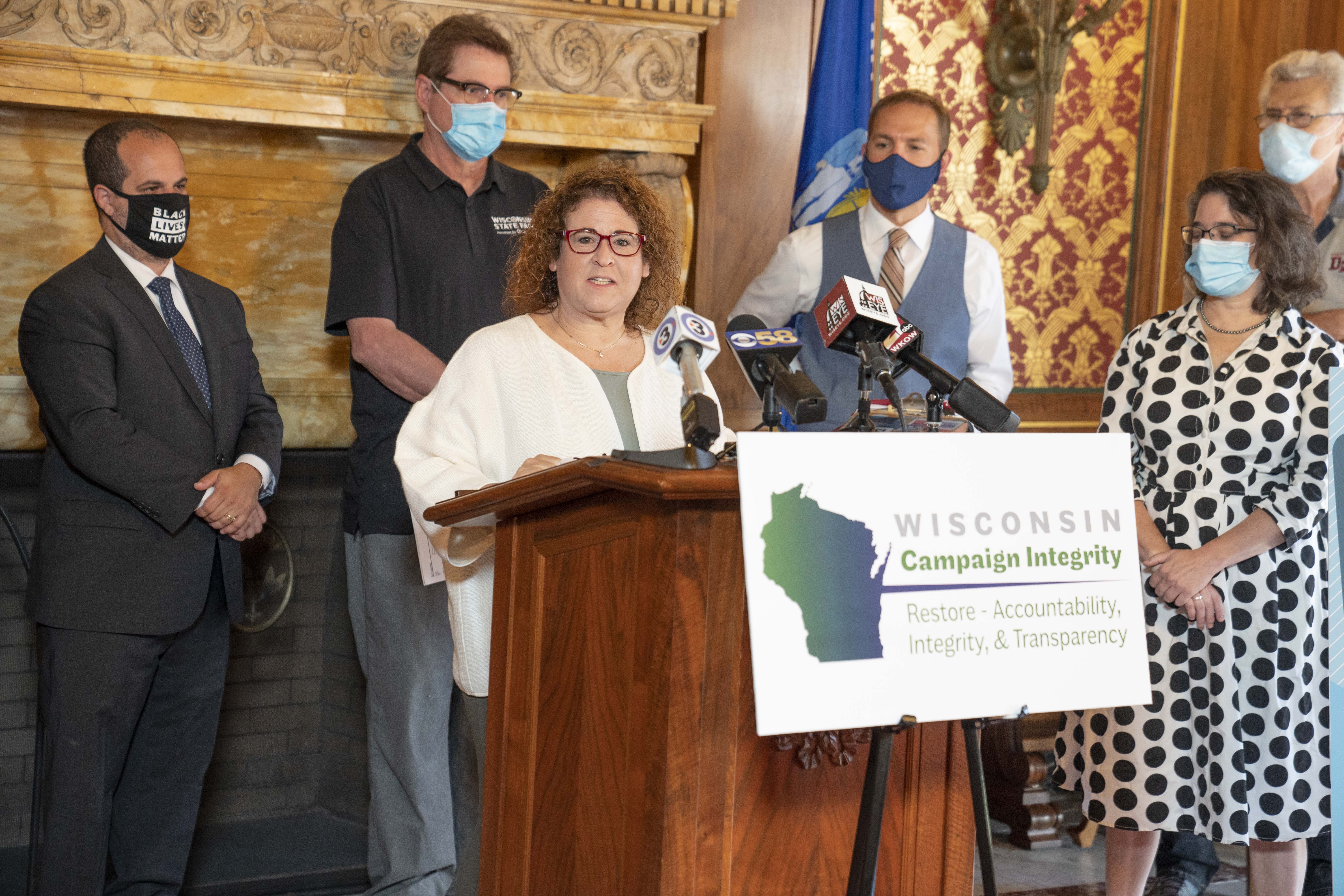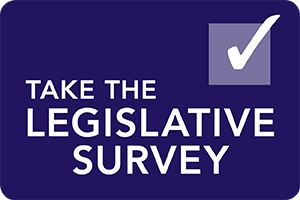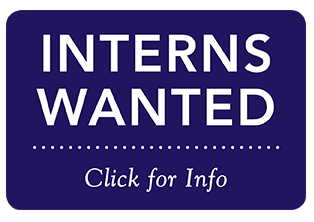
Democrats Introduce Campaign Finance Integrity Legislation
MADISON – Today, Representative Lisa Subeck (D-Madison) and Legislative Democrats introduced the Wisconsin Campaign Integrity Act to restore accountability, integrity, and transparency in regard to political campaign fundraising and expenditures. The 2010 United States Supreme Court’s Citizens United v. FEC decision, coupled with the 2015 Republican overhaul of Wisconsin’s campaign finance laws, has allowed the voices of Wisconsin voters to be drowned out by the disproportionate influence of corporate and special interest money in politics.
“With each election, it becomes clearer that people are fed up with the corrupting influence of unlimited special interest spending on our elections. Through its ruling on Citizens United, the Supreme Court handed a giant megaphone to corporations and billionaires who can afford to drown out the voices of average citizens,” said Rep. Subeck. “Citizens United and the resulting influx of spending by corporations and SuperPACs have eroded the people’s trust in their elected officials. We need urgent action to restore our democracy and get big money out of politics.”
The package of bills introduced today includes the reintroduction of a proposal by Rep. Subeck to place a statewide advisory referendum on the November, 2022 ballot that would give voters the opportunity to voice their support for a constitutional amendment overturning the Supreme Court’s ruling on Citizens United. Over the past decade, the Citizens United ruling has ushered in a new era of unlimited corporate spending on elections. 166 counties and municipalities in Wisconsin have joined over 834 counties and municipalities nationwide in passing similar referendums or resolutions. About 3.3 million people (58% of Wisconsinites) live in the jurisdictions where resolutions or referendums opposing Citizens United have passed.
“During the last three legislative sessions, the Republican majority has failed to act on similar resolutions, refusing to even hold a hearing,” said Rep. Subeck. “Since the Supreme Court ruling on Citizens United, outside spending on elections by special interests has reached an all-time high, while rulings by the Wisconsin Supreme Court have allowed the sources of much of this spending to go undisclosed, keeping Wisconsinites in the dark about who is trying to influence their votes.”
The Assembly Joint Resolution and Senate Joint Resolution, drafted as LRB 0932 & LRB 4226 would place the following advisory referendum question on the November, 2020 ballot:
“The U.S. Supreme Court’s decisions in Citizens United and related cases allow unlimited spending to influence local, state, and federal elections. To allow all Americans to have an equal say in our democracy, shall Wisconsin’s congressional delegation support, and the Wisconsin legislature ratify, an amendment to the U.S. Constitution stating:
- Only human beings—not corporations, unions, nonprofit organizations, or similar associations—are endowed with constitutional rights, and
- Money is not speech, and therefore limiting political contributions and spending is not equivalent to restricting political speech.”
To compliment LRB-0932, Rep. Subeck also reintroduced the Communications Transparency Act (LRB-4225) today. The Communications Transparency Act would require increased reporting of independent expenditures and communications coordinated between candidates and outside groups. The bill also requires that outside groups disclose the names of donors who are paying for these communications.
“Election transparency is fundamental to a healthy democracy. Imposing mass communication disclosure requirements will allow voters to know who is trying to influence our elections and will make it harder for wealthy individuals and corporations with special interests to hide anonymously behind shadowy special interest groups,” said Rep. Subeck. “Shedding light on who is behind these ‘dark money’ mailings and advertisements in elections will help restore integrity and faith in our democratic process.”
In 2020 legislative races, candidates and groups spent a record $53.9 million. That follows successive records for group and legislative candidate spending of $35.8 million in 2018 and $28.1 million in 2016. In the most recent races for Governor, Attorney General, the Wisconsin Supreme Court, and State Superintendent of Public Instruction, candidates and groups also spent record amounts of money for those elections.
The full Wisconsin Campaign Integrity Act package includes the following proposed bills:
- Citizens United Resolution (LRB-4226) - resolution places a question on the November 2022 ballot to ask the people if Congress should propose an amendment to overturn Citizens United v. F.E.C. (Subeck/Smith)
- Communications Transparency Act (LRB-4225) - This proposal requires reporting of mass communications and communication coordination within 48 hours of the mass communications, provided the disbursement for the mass communications exceed $500 and the mass communications are made within 60 days of a primary or election. (Subeck/Larson)
- Contribution Sunshine Act (LRB-4224) - This proposal requires any committee that receives campaign finance contributions of more than $100 cumulatively from an individual to report that individual’s place of employment and occupation, if any. (Brostoff/Larson)
- No Corporate Campaign Bribes Act (LRB-4223) - This proposal amends Wisconsin State Statutes to prohibit a corporation, cooperative association, labor organization, or federally recognized American Indian Tribe from making contributions to segregated funds established and administered by a political party or legislative campaign committee. (Brostoff/Larson)
- Coordination Control Act (LRB-4222) - This proposal places the same financial limits on coordinated expenditures between candidates and groups as are currently in place for direct contributions. (Anderson/Larson)
- Closing the PAC Loophole Act (LRB-4221) - This proposal closes a loophole in the legal definition of a PAC that groups use to bypass donation limits. (Anderson/Larson)
- Campaign Contribution Limits Act (LRB-4220) – modifies campaign contribution limits to candidates by groups, entities, and individuals (Sinicki/Larson)



